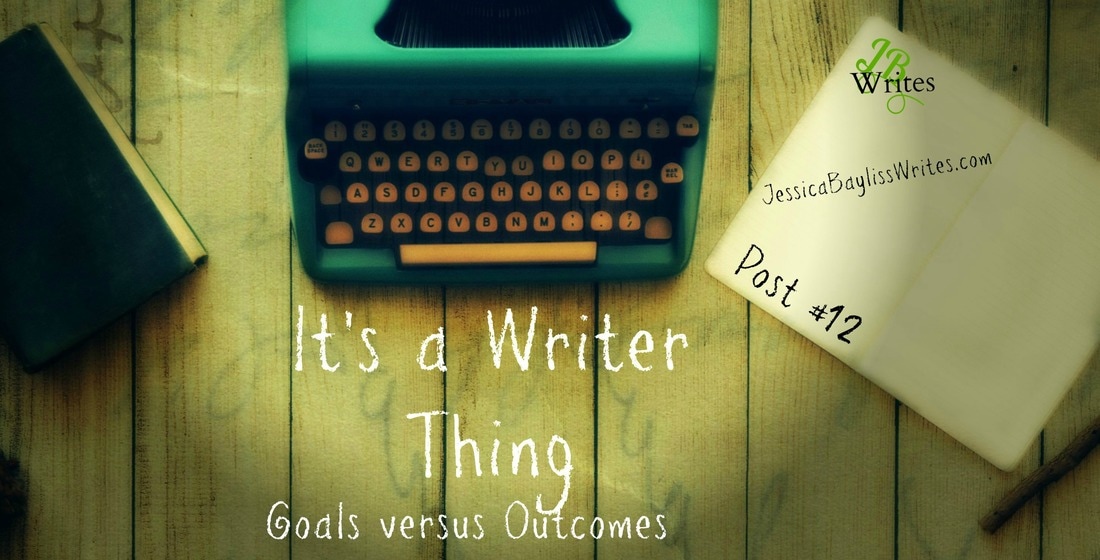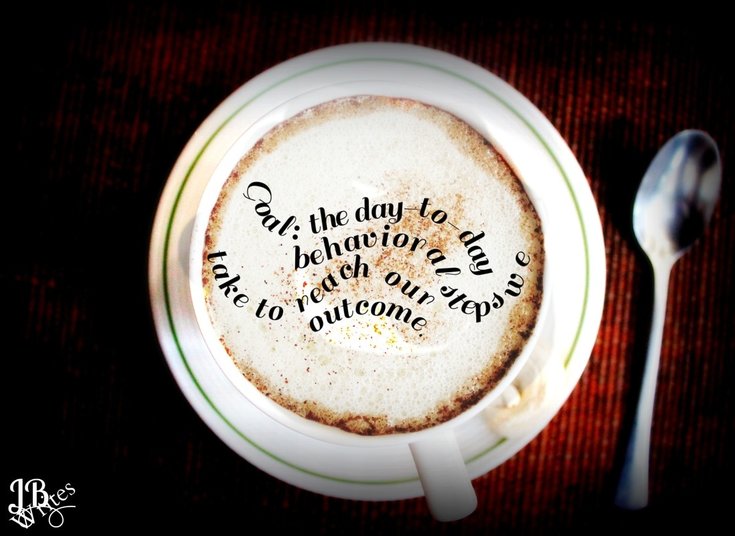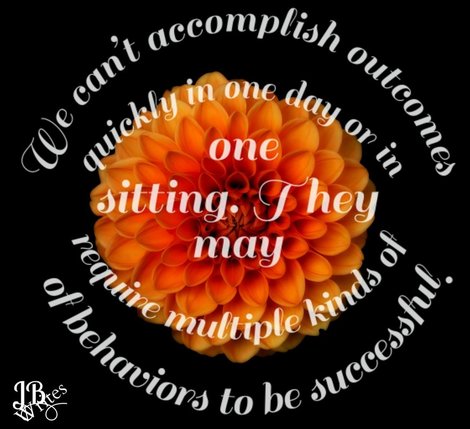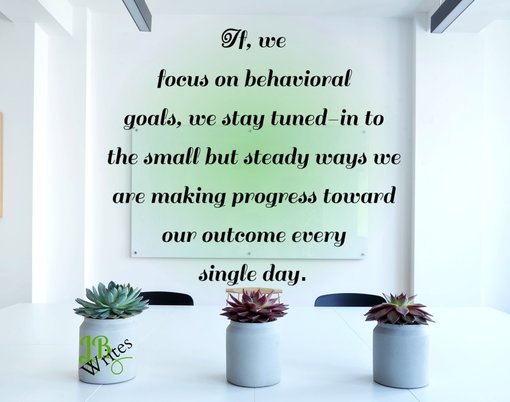Today, I want to talk about goals. In my work as a clinical psychologist, I help people set goals to improve their health and overcome challenges. I’m a firm believer in making commitments to ourselves, regardless of our life strivings are.
But the way we set goals matters.
Here’s what I mean. Take someone who is trying to lose weight. Their goal might be to lose ten pounds or twenty pounds or whatever. But actually, number of pounds isn’t actually a goal; it’s an outcome. A goal is something completely different.
Definitions
Goal: the day-to-day behavioral steps needed to reach our outcome.
Applying These Concepts
In writing, a goal might be to write every day from 5AM to 6AM and for 3 hours on Saturdays. Or, to write 1k each day. Or five hundred. Or five thousand. If we’re revising, we could aim for one chapter a day or send our MS to three critique partners by the end of the week. For querying authors, an outcome is to sign with an agent. The goal might be to query two new agents each week or to always have ten queries out at any given time. Or to learn how to actually write a query because that’s another totally different skill we must master (and it’s frickin’ hard).
These goals can all help us reach the outcomes of writing that novel, getting an agent, and being a published author.
WHY DOES THE DISTINCTION BETWEEN OUTCOME AND GOAL MATTER?
1) Outcomes aren’t always behaviorally-driven. In other words, the thing we’re trying to accomplish isn’t directly under our control.
We can cut calories at will (even though that’s frickin’ hard too), but we can’t lose weight at will. Whether we shed or gain pounds is due to many complex factors, including our behaviors and processes inside our bodies; we can’t predict exactly how much we’ll lose or how fast.
In the writing realm, there is a mind-boggling number of uncontrollable factors, like what others think of our work. We can (and should) always practice to get better, but we can be the best writer the multi-verse has ever seen, and someone will still call our book very bad names. We can’t control when the agent will read our query or whether that editor will request the full.
Another challenge of writing is, we can control the number of words we write, but we can’t control how those words will come together to form a story. Or, to be more specific, we can control how the words come together, but it takes many passes to get it right. That brings me to number two.
aviors to be successful.
| 2) Outcomes require many steps and sustained effort. In other words, we can’t accomplish them quickly in one day or one sitting, and they require multiple types of behaviors to be successful In weight loss, we have to cut calories, change the kinds of things we eat, and increase our physical activity. In writing, there’s drafting, revising, editing, getting and incorporating feedback. And don’t even get me started on the process of querying and submissions. There are many steps (and sub-steps, and sub-sub- |
IT’S ALL ABOUT MOTIVATION
If, however, we focus on behavioral goals, we stay tuned-in to the small but steady ways we are making progress toward our outcome every single day. If I hit my calorie count, even if my jeans are still making my feet go numb after a week, eventually they’ll fit better. They have to, as long as I don’t give up. If I get my 1k, that book may not be done this week or this month, but it will get done as long as I don’t give up.
We need to celebrate our goal-achievement every day. And when we nail it, we have more motivation to hit it hard the next day.





 RSS Feed
RSS Feed
